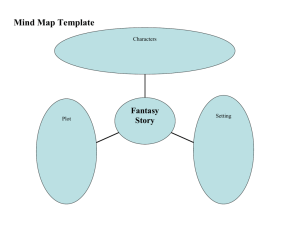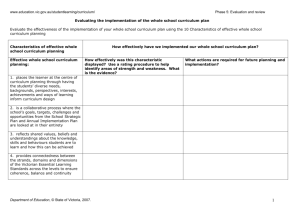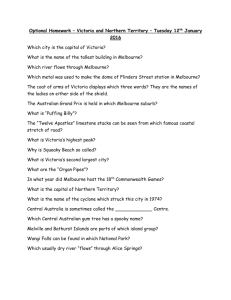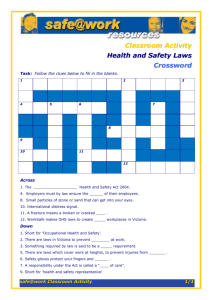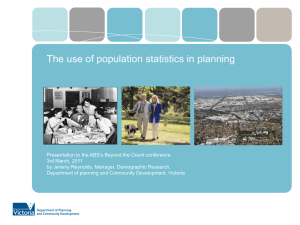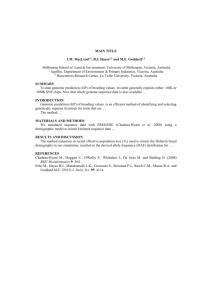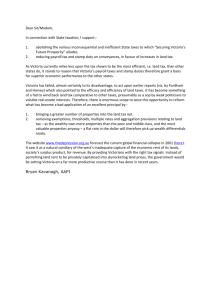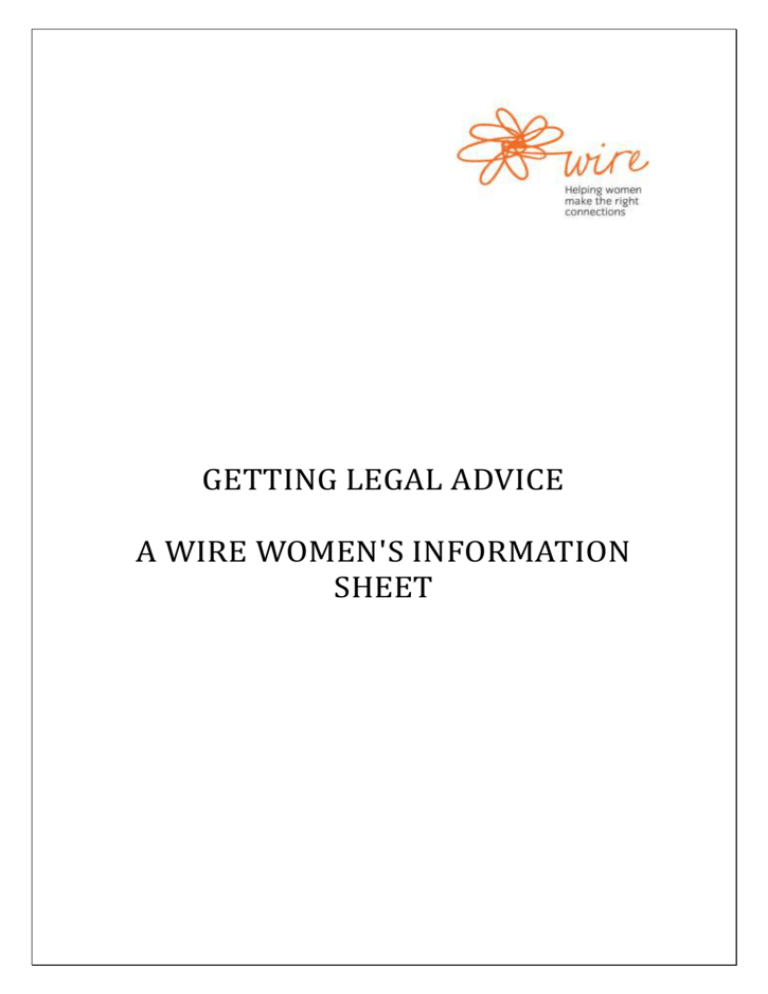
GETTING LEGAL ADVICE
A WIRE WOMEN'S INFORMATION
SHEET
© 2009 WIRE Women’s Information
Women’s Information and Referral Exchange Inc.
372 Spencer Street, West Melbourne, 3003
Call Women’s Support Line 1300 134 130 for the cost of a local call
(Telephone Interpreter Service available; hearing-impaired women can chat online at
www.wire.org.au or email inforequests@wire.org.au Weekdays 9am – 5pm
Visit Women’s Information Centre at 372 Spencer Street, West Melbourne
Weekdays 9.30am – 4.30pm
Email inforequests@wire.org.au (response within 2 business days)
Chat online (weekdays 9am – 5pm) or visit our website www.wire.org.au
Every effort has been made to ensure the information contained in this sheet is accurate
and current at the time of printing - 2009. However, no responsibility will be taken for the
accuracy or reliability of the information, or for any loss that may arise from errors,
omissions, or changes to government policy or the law.
© Women’s Information and Referral Exchange Inc. ABN 98 957 157 895 Reg. No. A122
2
GETTING LEGAL ADVICE
Understanding your legal rights and obligations is very important when you are facing
complex life decisions. Whether it’s finding the best way to protect yourself and your family
from threatening or abusive behaviour, or ensuring you receive your fair share in a property
settlement, knowing what options are available and how the legal process works can help
you decide what you need to do.
You may also need help to resolve an ongoing dispute especially if it involves your
wellbeing, your children’s welfare, or the division of shared property and possessions. While
this does not always mean going to court, it usually requires getting legal advice from a
lawyer.
So where do I go to get legal advice?
Victoria Legal Aid and community legal centres provide free legal advice, or you can employ
a lawyer privately. Some private lawyers and law firms offer the first appointment free or at
a low cost. Always ask what costs are involved and whether discounts are available before
you engage a lawyer. For more information about private lawyers contact the Law Institute.
If you need to employ a lawyer but can’t afford it, legal aid may be able to help. However,
you must prove that you are on a low income and are likely to win your case. For more
detailed information about the legal aid guidelines and how to apply visit
www.legalaid.vic.gov.au
If you are involved in a Family Law dispute, legal aid is usually only granted for cases that
deal with children’s residency and contact issues, and is not given for divorces. Legal aid is
subject to restrictions and may involve paying back all or part of the costs of representation.
Contact WIRE on 1300 134 130 for more information.
It pays to ask the right questions
Before you decide to engage a lawyer make sure they have the right kind of experience and
expertise, and are not currently giving legal advice to your partner. This is particularly
important in domestic violence and Family Law cases where there may be complications
regarding intervention and parenting orders.
Be prepared
Getting involved in a legal dispute can be a very complex, longwinded and costly process
particularly if you are totally unprepared. To save time and ultimately money, it’s a good
3
idea to get originals or copies of all official paperwork before you see your lawyer. Here’s a
quick checklist of the types of information a lawyer may ask you for.
•
•
•
•
•
•
•
•
•
•
•
•
•
•
•
•
•
•
•
Passport
Birth certificate
Citizenship papers
Marriage certificate
Driver’s license
Health care card
Bank books, ATM and credit cards
Bank statements
Tax returns and tax records
Titles of ownership and property deeds
Partnership and company records
Details of joint and personal debts
Guarantees
Wills
Car registration
Mortgage and home loan details
Rental agreement
Centrelink number
Insurance policies (e.g. home, contents, car, life and superannuation)
Crimes compensation
Women who are victims or have been adversely affected by a violent crime may be able to
get financial assistance from the Victims of Crime Assistance Tribunal (VOCAT). This includes
compensation for pain and suffering, as well as assistance with medical and counselling
expenses and loss of income.
Women who are injured as a direct result of a crime, or have witnessed a crime, are entitled
to apply for compensation. Applications must be lodged within two years of the crime,
which must have occurred in Victoria and been reported to the police. For more
information, contact the Melbourne Magistrates’ Court, the Victims Referral Assistance
Service or visit www.victimsofcrime.vic.gov.au
4
Intervention orders
What is an intervention order?
An intervention order is a court order made by a magistrate. It is designed to protect you
from a member of your family or household, or from someone you have had a close
relationship with. It is a way of protecting you, and if necessary your children, from another
person’s threatening behaviour, and threats or damage to property.
Intervention orders can be issued for a length of time the magistrate thinks suitable. If you
still need the order beyond that time, you can apply for another about a month before it
finishes.
How will the order protect me?
An intervention order can state that the person who makes you feel unsafe is not allowed to
approach, telephone or contact you. It can order them not to come anywhere you are
regularly (like your house, workplace or children’s school). It can also state that the offender
is not allowed to get other people to harass you. It is also designed to prevent damage or
threats to damage your property.
It is a criminal offence to breach an order. If this happens, contact the police as soon as
possible and ask what action they will take to enforce the order. The police have the power
to charge the offender and so must act on a complaint, particularly if your personal safety or
property is seriously threatened.
How do I apply for an intervention order?
You can either apply directly to the nearest Magistrates’ Court or, if you need more
information and support, contact Victoria Legal Aid or an outreach worker at one of the
women’s legal or domestic violence support services listed below who will be able to assist
you with your application. A detailed contact list is available through WIRE.
WIRE Information sheets/booklets
The following sheets have been put together to provide you with practical information that
may also be helpful.
•
•
•
Family Violence: What you can do for yourself and your family
Money problems with your partner? Dealing with financial abuse
Sexual Assault
5
•
•
Stalking
Women, Money and Debt
*Where do I go for help?
WIRE Women’s Support Line 1300 134 130 www.wire.org.au
Victoria Police 000 for immediate attendance
Community Legal Centres Victoria (03) 9652 1500 www.communitylaw.org.au
Court Network 1800 681 614 www.courtnetwork.com.au
Everyday-Law (Victoria Law Foundation) www.everyday-law.org.au
Law Institute Victoria (03) 9607 9311 Online Legal Referral Service www.liv.asn.au
Melbourne Magistrates’ Court (03) 9628 7777 www.magistratescourt.vic.gov.au
Victims of Crime Helpline 1800 819 817/ 0427 767 891 (SMS)
www.victimsofcrime.vic.gov.au www.vocat.vic.gov.au
Victoria Legal Aid 1300 792 387 www.legalaid.vic.gov.au
Victorian Law Handbook (Fitzroy Legal Service) www.lawhandbook.org.au
Women’s Legal Service Victoria (03) 8622 0600/1800 133 302 www.womenslegal.org.au
Family/domestic violence and sexual assault support services
SafeSteps Family Violence Response Centre (Vic) 1800 015 188 www.safesteps.org.au
1800 Respect 1800 737 732 National Sexual Assault, Domestic and Family Violence
Counselling Service www.1800respect.org.au
InTouch Multicultural Centre Against Family Violence (03) 9413 6500/ 1800 755 988
intouch.asn.au
Victorian Sexual Assault Crisis Line 1800 806 292 (after hours)/ (03) 8345 3494
(police/emergency) www.sacl.com.au
*Updated on 1 April 2015
6

